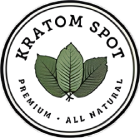
It’s no secret that FDA Commissioner Scott Gottlieb is no fan of Kratom, and under his tenure, relations between Kratom and the FDA have been strained at best and often adversarial. That’s what makes his recently announced resignation such big news to Kratom advocates, prompting much discussion about the impact, if any, his exit will have. Unexpectedly, Commissioner Gottlieb announced his imminent departure March 5, 2019, with a notice that he had tendered his resignation, effective in “about a month” from that date. The confusion surrounding his exit is the perfect metaphor for the confusion he brought to the FDA’s policies regarding many traditional, natural, and homeopathic products.
Who Is Scott Gottlieb?
Commissioner Gottlieb graduated from Icahn School of Medicine at Mount Sinai as a medical doctor after completing his residency in internal medicine. He soon entered the FDA’s service as an advisor and worked with them to help develop medical policies off and on for several years. In the private sector, he continued to work in internal medicine and became heavily invested in for-profit medical and pharmaceutical ventures, a series of relationships that would, perhaps, be the cause of eventual conflict between the FDA and Kratom.
With the election of Donald Trump as president in 2016, a campaign Gottlieb advised for then became a working member of, he was tapped as the new President’s nominee to head the FDA. During his confirmation hearing, Gottlieb made waves with an impassioned speech about the devastating impact of opioid addiction in America today. This not only caught the public’s attention and impressed Congress enough to help get him confirmed, but it also gave some hope that Kratom and the FDA might soon find common ground, given the building reputation of Kratom at the time.
Instead, Commissioner Gottlieb took aim at traditional medicines, homeopathic remedies, and natural supplements in a vicious crackdown. Products with centuries-long histories of use found their freedoms to market to and educate the public heavily curtailed. Kratom news became harder to come by as the FDA issued repeated warning statements about acceptable communication practices. While some were necessary and issued pursuant to true public health crises, the remaining guidance resulted in what has largely been a news blackout, where companies are forbidden to talk about products in anything but the vaguest of terms, while customers must work harder than ever at performing their own research to find out the benefits and risks natural products, such as Kratom, may hold.
The Interests That Matter
There has been quite a bit of speculation toward the commissioner’s reasoning for sinking the relationship between Kratom and the FDA, but most telling may be the other products targeted along with Kratom. The FDA has turned special attention toward the makers of nutritional supplements, herbal products, homeopathic remedies, and the recently re-legalized industrial hemp for warnings, press-releases, and a tightening of regulations–all industry niches that threaten the profits of big pharmaceutical giants like those Commissioner Gottlieb has advised and is heavily invested in.
This potential conflict of interest has not gone unnoticed and is a popular talking point in the Kratom community. News of an online petition seeking the Commissioner’s recusement from decisions regarding Kratom spread late last year. After garnishing a modest signature total approaching 10,000 respondents, the point will likely become moot with his resignation as new leadership enters the picture. In addition, Congress did provide some pushback against some of the more draconian efforts of the FDA over the past few years, including a push to list Kratom as a Schedule 1 controlled substance.
The Next FDA Commissioner
Unfortunately, the exit of Commissioner Gottlieb doesn’t allow for the certainties that allow an industry to thrive and grow. After so recent an attack, investors and researchers may be hesitant to turn resources toward natural and traditional remedies or supplements without an explicitly signaled change in course from the FDA. Such a move is unlikely until a new commissioner is chosen and confirmed, however, if the choice for acting commissioner is any indication, there may be a reason for hope that relations between the FDA and Kratom will soon normalize.
Despite Commissioner Gottlieb’s desire to see HHS Assistant Secretary Brett Giroir take over the reins at the FDA, Director of the National Cancer Institute Norman “Ned” Sharpless was tapped as acting commissioner. While not addressing his feelings toward Kratom and the FDA directly, Dr. Sharpless was part of the NIC entourage that appeared before a House committee in April of 2018 and spoke against the scheduling of Kratom among other things. The NCI also has a reputation of accepting patients’ desires to explore alternative treatment options, at least in the face of the horrible diseases the NIC is tasked with fighting.
Fast-Changing Political Landscape
Make no mistake: as much as the FDA serves a vital role in the nation’s healthcare and product safety systems, it is also a political organization at the highest levels. The relationship between Kratom and the FDA could very well hinge on the eventual permanent successor to Commissioner Gottlieb, and that relationship could affect the availability of quality Kratom products to the public. While the focus on the current opioid epidemic and ways to slow or halt its progress will no doubt factor into the future of the organization, the role the eventual nominee sees for natural and traditional remedies will be an indicator of things to come.
One ally in this endeavor could prove to be the newly legal cannabis industry. Long maligned, much as Kratom currently is, public pressure won its eventual freedom and return to public availability. This stands as a testament not only to the public’s interest in natural health and wellness products they deem right for them but also their ability to demand and dictate changes to policy through their elected representatives. If you believe Kratom should be a resource for use by responsible adults, be ready to contact your representatives as eventual confirmation hearings approach. You can keep up on the latest Kratom news, including the dynamic relationship between the FDA and Kratom, by keeping an eye on the Kratom Spot blog.


